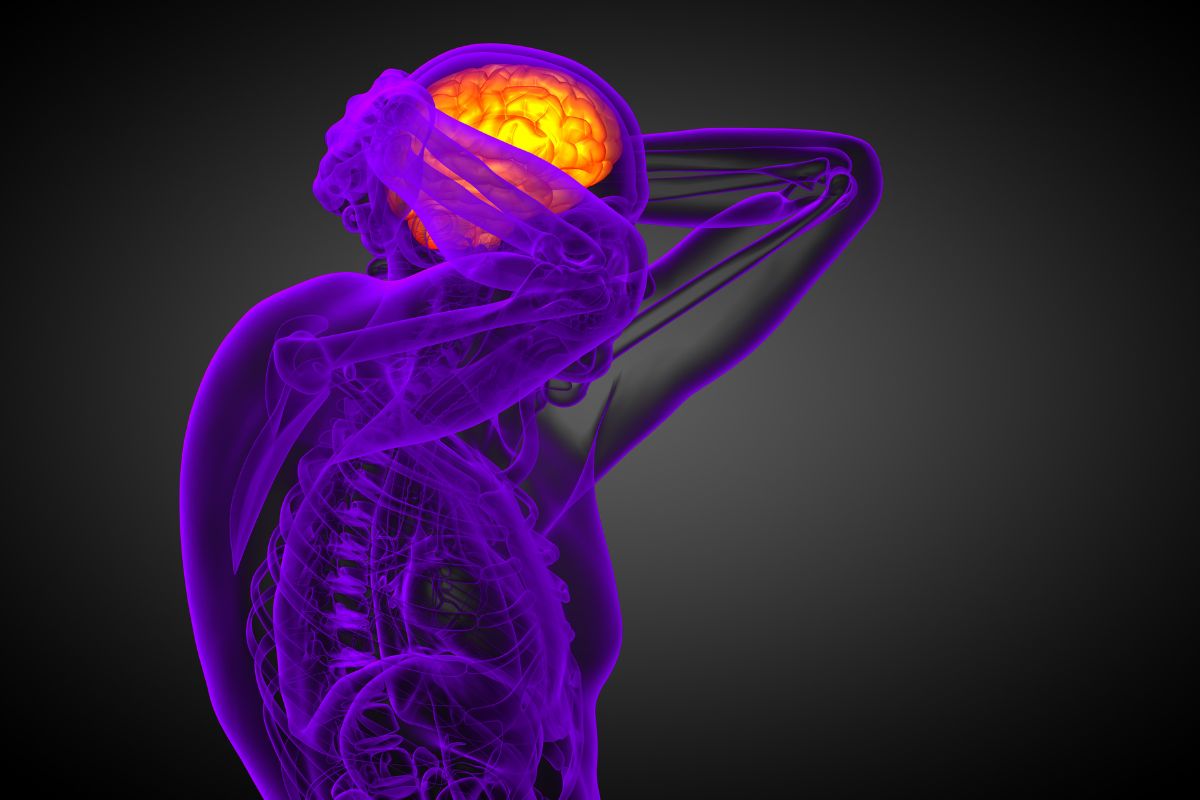Complex PTSD and PTSD may seem similar, but these conditions affect the brain in different ways and can cause different symptoms for their sufferers.
Here’s everything you need to know about how C-PTSD affects the brain, and how it can be treated.
What Is Complex PTSD?
Complex post-traumatic stress disorder or C-PTSD is a mental health disorder that’s caused by exposure to severe or long-term trauma.
Although PTSD and complex PTSD may seem pretty similar, their causes and effects are different.
While they’re both the result of traumatic experiences, C-PTSD can have more persistent, lifelong effects.
PTSD is usually caused by a “short-lived” trauma (or one-off traumatic event), while C-PTSD is the result of chronic exposure to trauma, such as childhood abuse, domestic violence, human trafficking, or living in a war zone.
PTSD is usually characterized by the post-traumatic symptoms its sufferer’s experience, including flashbacks, nightmares, paranoia, and uncontrollable emotions.
Although complex PTSD includes all of these, it also changes the sufferer’s self-concept and awareness.
The way they see themselves, their faith, their values and morals may be dramatically affected by their trauma.
Symptoms of complex PTSD can include:
- Feeling worthless
- Difficulty with emotional regulation
- Struggling to feel connected to other people
- Relationship difficulties, such as struggling to maintain relationships with friends and partners
- Feeling angry at the world
- Feeling different to other people
- Experiencing dissociative symptoms including derealisation and depersonalisation
- Feeling suicidal
- Feeling chronically empty
Unfortunately, C-PTSD is a pretty new construct, and it doesn’t appear in the current DSM (5th edition), which is used to diagnose and treat mental health conditions.
This can make it much more difficult to diagnose C-PTSD, and the overlaps between PTSD and C-PTSD can be hard to distinguish.
How Does C-PTSD Affect The Brain?
People with C-PTSD will experience significant changes to the brain due to their continuous exposure to hormones like adrenaline, cortisol, and norepinephrine.
When our brains are exposed to abnormal levels of these hormones, they can cause changes in our biochemistry that affects our day-to-day lives.
C-PTSD And Adrenaline
Adrenaline (epinephrine) can be one of the most problematic hormones.
Adrenaline is responsible for increasing our heart rate and respiration, blood flow to the brain, and it also decreases our sensitivity to pain and inhibits the production of insulin.
In the right settings, adrenaline can save our lives.
The adrenaline rush we feel in moments of danger can save our lives, and give us the energy we need to run or fight.
However, if we’re exposed to consistent, prolonged danger (as those with C-PTSD usually are), our bodies are consistently producing adrenaline and then releasing cortisol to counteract its effects.
The problem here is that adrenaline can become addictive.
Not only will C-PTSD sufferers be more likely to see out adrenaline-inducing activities, but otherwise non-threatening events or stimuli (like a tap on the shoulder), may create the same physical reaction as an animal attack or a bomb threat.
Overactive Amygdala

Adrenaline is linked to the amygdala, and those with both PTSD and complex PTSD are more likely to have an overactive amygdala.
The amygdala is the brain’s interactive centre, and it’s responsible for emotions, motivation, and emotional behavior and responses.
When you’re faced with a threat or disturbing event, the amygdala will send signals that create a fear-based response in your body.
People with C-PTSD are more likely to be constantly “on edge” and unable to think rationally.
Damaged Hippocampus
Most people with C-PTSD and PTSD experience extremely complex and unwanted feelings. This can include paranoid thoughts or intrusive thoughts about violence.
It’s thought that these unwanted thoughts and feelings are caused by a damaged hippocampus.
The hippocampus is the memory centre of your brain, and after experiencing trauma, it remembers events accurately to try and make sense of them.
However, this trauma is often extremely overwhelming and uncomfortable, and the information associated with it fails to code correctly.
Not only can this lead to unwanted or uncomfortable thoughts, but it can leave C-PTSD sufferers struggling to remember important details of the event.
Some sufferers may also find themselves thinking excessively about their trauma as their hippocampus works overtime to try and decipher the events.
Damaged Prefrontal Cortex (PFC)
The prefrontal cortex is responsible for regulating our emotions, actions, and thoughts by connecting with other regions of the brain.
It’s often thought of as a ‘filtering mechanism’, and it can be found in the frontal lobe.
The PFC can also help with decision-making, regulating attention, initiating both voluntary and conscious behaviors, and interpreting emotions.
The prefrontal cortex also acts as the ‘brakes’ in your brain for certain situations.
For example, if you’ve seen a perceived threat and then realized it isn’t actually a threat after all, your PFC probably helped you rationalize your reaction to your situation.
However, some sufferers with PTSD have an overactive or faulty PFC that can struggle to regulate itself.
This may lead to ‘overreactions’ in certain situations, and make C-PTSD feel unnecessarily stressed at minor or non-existent threats.
Can C-PTSD Brain Changes Be Reversed?
Although there’s no guarantee that trauma-related brain changes in C-PTSD sufferers can be reversed, some neurological research suggests that it might be.
Many professionals are in agreement that the brain is ever-changing, making recovery possible for many sufferers.
C-PTSD sufferers will often require extensive therapy combined with medication.
Most doctors prescribe medications that affect the neurotransmitters in the brain, including serotonin and norepinephrine which can help balance the chemicals in the brain and reduce some symptoms of C-PTSD.
Not every C-PTSD sufferer will respond the same to medication.
Doctors may offer anything from antipsychotics and beta–blockers to antidepressants and benzodiazepines depending on the symptoms.
Final Thoughts
Although research into C-PTSD is still in its infancy, it can have a significant effect on some of the brain’s most important processing centers.
However, many C-PTSD sufferers can effectively manage their symptoms with a combination of therapy and medication.


